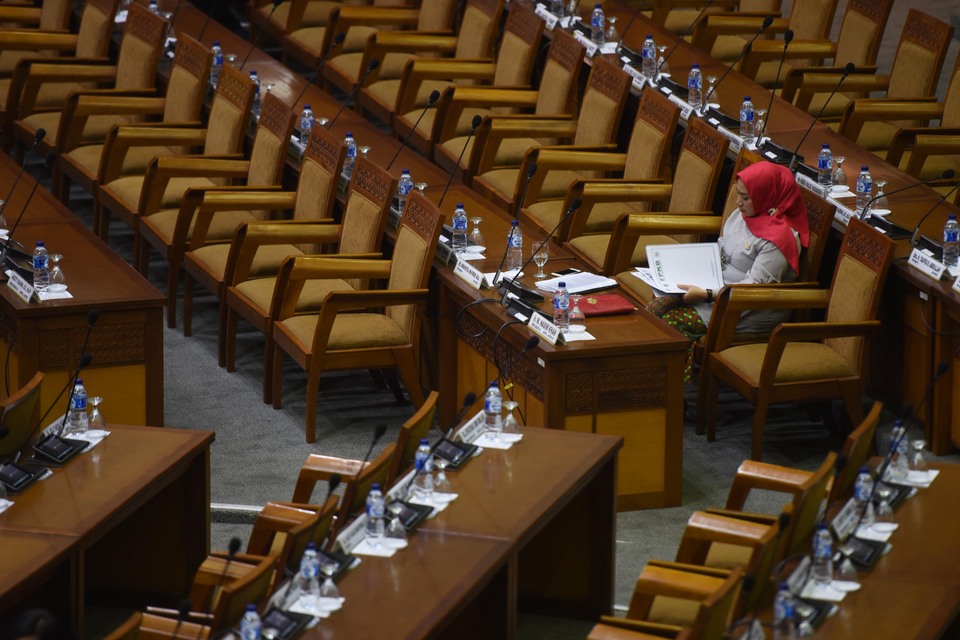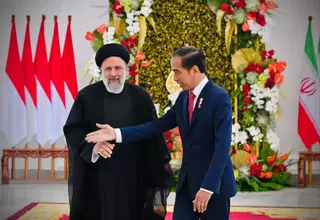Govt Wants to Keep 3.5 Percent Parliamentary Threshold in Election Law Amendments: Minister

Jakarta. Home Affairs Minister Tjahjo Kumolo said on Monday (16/01) the government intends to keep the current 3.5 percent parliamentary threshold in the Election Law, as the House Representatives is about to begin deliberations to revise it.
The House will discuss revisions to the current law after the Constitutional Court ruled in January 2014 that legislative and presidential elections must be staged simultaneously.
Amendments to the law will include changes to the requirements for political parties before they can nominate a presidential candidate and a possible change to the said parliamentary threshold.
The Home Affairs Ministry, who supervises the country's elections, has proposed to keep the 3.5 percent parliamentary threshold in its latest draft of revisions submitted to the House.
That means political parties must each gain at least 3.5 percent of the national number of votes to be able to send their members to the House as lawmakers.
"We will keep [the parliamentary threshold]. If possible, we want more than 3.5 percent. But if it's too hard to get it approved, we will keep the 3.5 percent," Tjahjo said at his office in Jakarta.
He argued the current threshold is the minimum for a genuinely democratic election, and he hoped that lawmakers will pass the revisions without much delay.
"I know political parties want to win, but we must keep our democracy in check," Tjahjo said.
The Golkar Party and Gerindra, or the Great Indonesia Movement Party, had moved to get rid of the parliamentary threshold during initial discussions on the Election Law amendments at the House.
Parties who are unable to gain 3.5 percent of the national number of votes will not be able to earn a seat in the House of Representatives even if their candidates win the election in their own regions.
Karyono Wibowo, a political expert from the think tank Indonesian Public Institute, said the parliamentary threshold is important to limit the number of political parties at the House.
Too many political parties at the parliament will make it harder for the government to pass bills or get important decisions approved. "The government won't be able to get a policy approved in quick time," Karyono said.
Tags: Keywords:POPULAR READS
KPK Identifies Sidoarjo Regent as Suspect in Corruption Probe
KPK has identified Ahmad Muhdlor Ali as a suspect in a corruption case involving the Sidoarjo Regional Tax Service AgencyEconomic Concerns Overshadow Security Worries for Indonesians in Iran
Indonesian citizens currently in Iran are more concerned about rising inflation than the security situation in the country.IDX Slides 2 Percent as Geopolitical Conflict Rattles Market Confidence
The IDX attributed the subdued performance of the index at the start of the week to the escalating geopolitical tensions in the Middle EastRupiah Declines Against Dollar Amid Geopolitical Unrest
The Indonesian rupiah depreciated against the US dollar in Tuesday's trading session, driven by escalating tensions between Iran and IsraelNasdem Vows to Honor the Constitutional Court Ruling on 2024 Presidential Election Dispute
Nasdem's Willy Aditya commits to respect the Constitutional Court's ruling on the 2024 presidential election dispute.Popular Tag
Most Popular






















